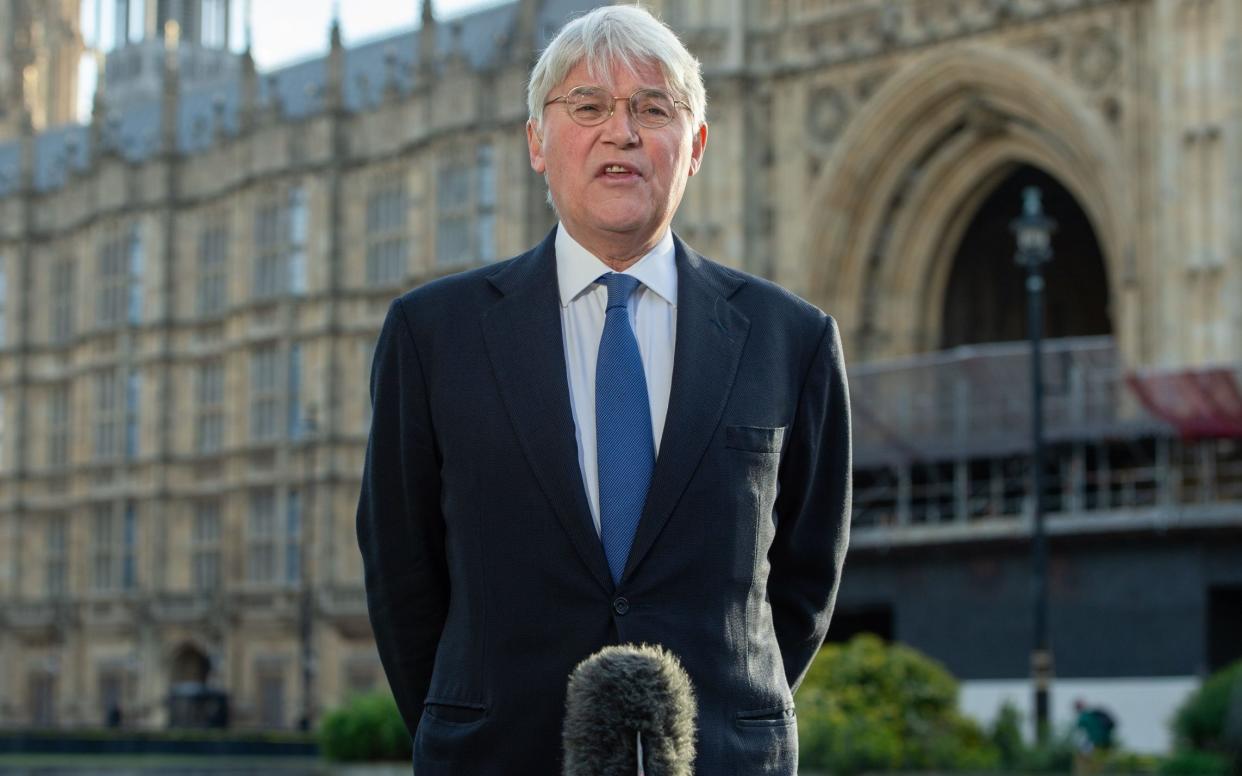House of Lords ‘bordering on racist’ over Rwanda Bill, says deputy foreign secretary

Lords have been “patronising” and “bordering on racism” over the independence of the Rwandan judicial system in dealing with the Government’s deportation scheme, a Cabinet minister has said.
As MPs and peers prepared to resume their consideration of the Safety of Rwanda Bill on Monday, Andrew Mitchell, the deputy foreign secretary, criticised the Lords over their approach to the legislation as he signalled there would be no concessions.
The passage of the Bill has been delayed for three weeks as the Upper House has inflicted a succession of defeats on the Government, introducing amendments that have subsequently been rejected by MPs.
It now returns to the Commons in a fourth round of parliamentary ping pong, with Rishi Sunak having declared that both Houses will sit throughout the day and night until the legislation is passed. He was due to hold a Downing Street press conference on Monday morning.
The standoff between the Lords and Commons has been boiled down to two amendments demanding an exemption from deportation for Afghans who worked with the UK military and an independent monitoring committee to establish that Rwanda is safe for asylum seekers.
Exemptions ‘unnecessary’
Speaking on the Today programme on Radio 4, Mr Mitchell said the amendment for such a monitoring committee was not needed, as the structures were already in place to ensure the Rwanda scheme worked properly and had been overseen by an internationally respected Rwandan judge, who was a fellow at Oxford University.
“Some of the discussions that have gone on in the Lords about the traditional arrangements to legal arrangements within Rwanda, have been patronising and, in my view, border on racism,” Mr Mitchell said.
He also rejected as “unnecessary” the calls for an exemption for Afghans who worked with the UK Government, saying there were already established schemes for them, which had allowed 16,100 Afghans to be settled in the UK.
“The Bill has been backwards and forwards three times now. It is time for the Lords, which is a revising chamber, to accept the will of the elected chamber and the will of the vast majority of our constituents who want to see this unsustainable position in the Channel stopped,” he said.
“The way in which the modern-day equivalent of the slave trader is abusing the people who are crossing, it’s extremely dangerous. It’s got to stop and this Bill will achieve that.”
‘Fatally flawed’
Earlier, Suella Braverman, the former home secretary, said she could not support the Bill, ahead of the crucial vote in Parliament on Monday.
“Unfortunately, I voted against the legislation because I think it’s fatally flawed,” she said. “I don’t think it’s going to stop the boats, and that’s the test of its efficacy.”
She added the legislation had “too many loopholes”, which would prevent it from having the “deterrent effect that is necessary to break the people smuggling gangs, to send the message to the illegal migrants that it’s not worth getting on a dinghy in the first place, because you’re not going to get a life in the UK”.
Mrs Braverman said the current Bill was vulnerable to “last-minute injunctions” by the European Court of Human Rights and susceptible to “illegal claims clogging up the courts”, adding: “The simple fact is this is our third Act of Parliament that the Government has introduced in four years to stop the boats.
“None of them have worked – none of them have worked because they are all still susceptible to the international human rights law framework contained in the European Convention on Human Rights judged by, and adjudicated by, the European Court of Human Rights in Strasbourg. That’s the problem, and that’s why I’ve been calling for a few years now to leave the European Convention on Human Rights.”
Lord Carlile of Berriew, a leading lawyer and independent crossbencher, signalled his continuing opposition, saying the Government’s current Rwanda Bill was “ill-judged, badly drafted, inappropriate” and “illegal in current UK and international law”.


